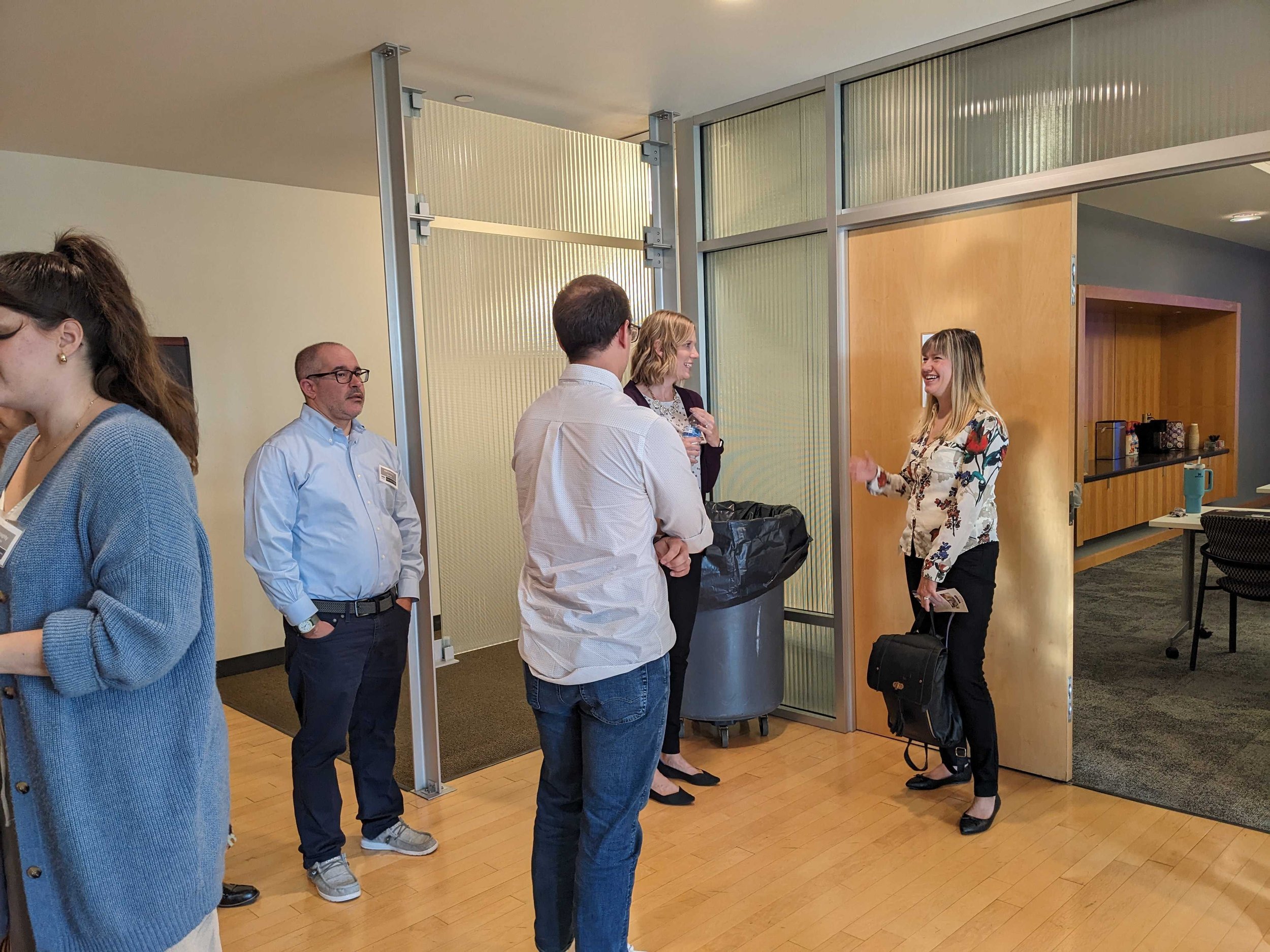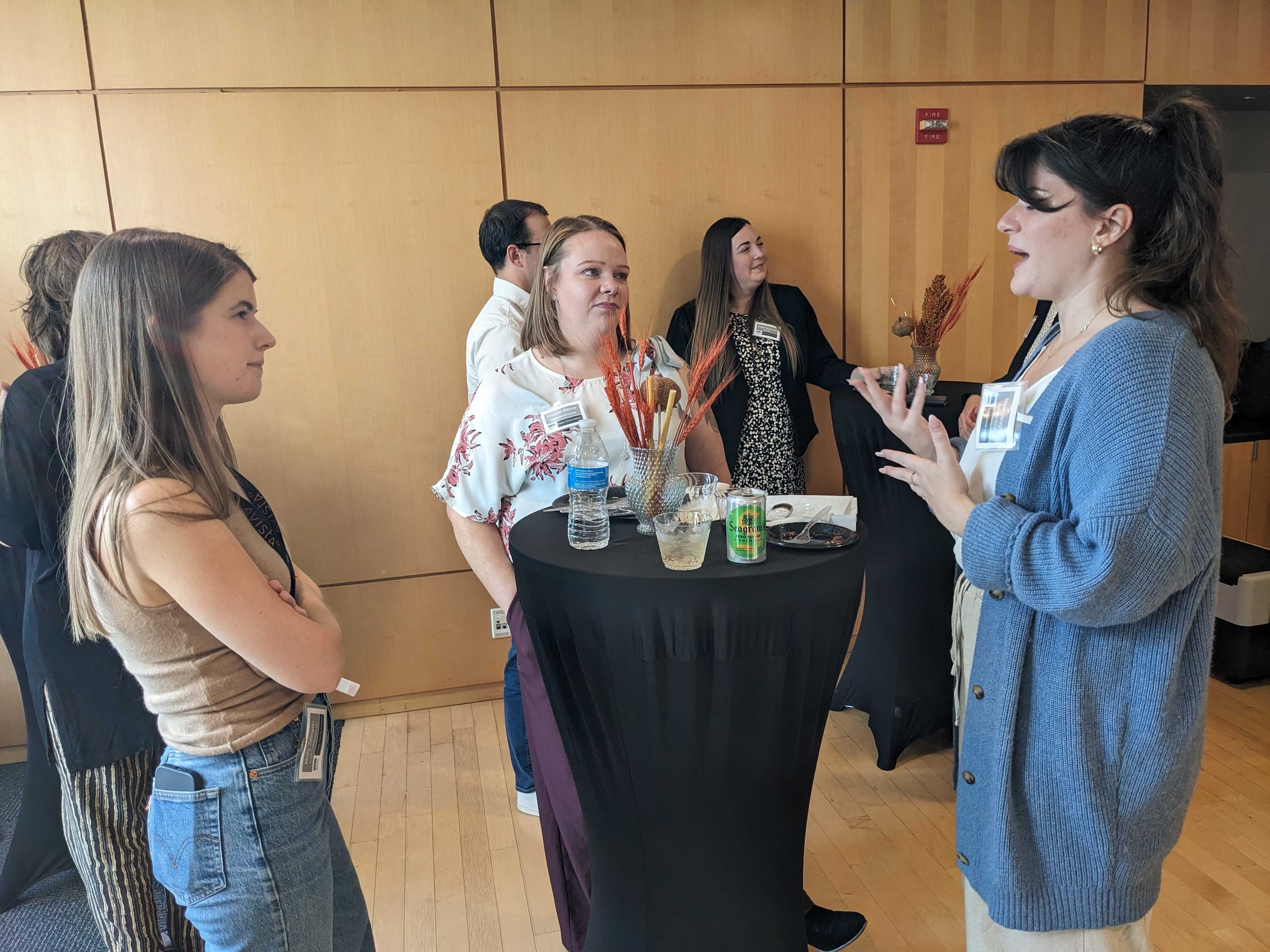IP Basics Showcase Helps Startups Strategize Effectively
Navigating the complexities of intellectual property (IP) in the life sciences industry can be challenging on its own, let alone for startups who often need to seek legal counsel in order to develop a comprehensive strategy that aligns with their business goals and ensures compliance with regulatory requirements. To address this, and more, we invited representatives from Jones Day and the Pittsburgh chapter of Women In Bio (WIB) for a one-hour session on IP basics.
The Showcase - IP 101: Intellectual Property for Life Sciences and Tech Companies invited locals and community members to learn everything IP, with specific focuses on patents, trademarks, trade secrets, and beyond!
Attendees of all backgrounds and interests, including life sciences startups, PhD students, and other entrepreneurs, headed up to the fifth floor of Bridgeside, where they were greeted with some great WIB swag before taking a seat in the boardroom. Hosted by Jones Day IP employees Amy Rupert, PhD, Patent Agent and Marlee R. Hartenstein, Associate, the showcase kicked off with initial introductions. And before the official presentation began, Amy touted the strong connection between Jones Day and WIB, stating that “Jones Day has many women in leadership roles and prides themselves on their women in leadership roles.”
Throughout the hour that Amy and Marlee spoke, they shared invaluable insights regarding the following topics:
Patents
Patents, in particular, grant startups exclusive rights to their inventions for a specified period (generally 20 years from the filing date). This exclusivity allows them to bring their products or therapies to market without direct competition, maximizing their market share and pricing flexibility.
Regulatory Bodies
In the life sciences industry, regulatory bodies, like the U.S. Food and Drug Administration (FDA), often require evidence of IP protections as part of the approval process for new drugs or medical devices. Having an IP in place can streamline the regulatory pathway and expedite product development.
Trade Secrets
Unlike patents, trademarks, and copyrights, trade secrets can potentially last indefinitely – if properly maintained. There is no requirement for formal registration or public disclosure. As long as the secret remains confidential and continues to provide a competitive advantage, it can be protected as a trade secret.
In general, the sentiment was that life sciences startups should recognize that intellectual property isn't just a legal formality, but a strategic asset that can impact their ability to secure funding, form partnerships, maintain market exclusivity, and protect their innovations. It would be advisable to work with experienced patent attorneys or IP professionals to develop a tailored strategy that aligns with their business goals and objectives from the onset.
Following the presentation, attendees and presenters enjoyed complimentary cocktails and catering while further discussing the topic at hand, making it obvious that the showcase was ideal for both new and growing companies!






